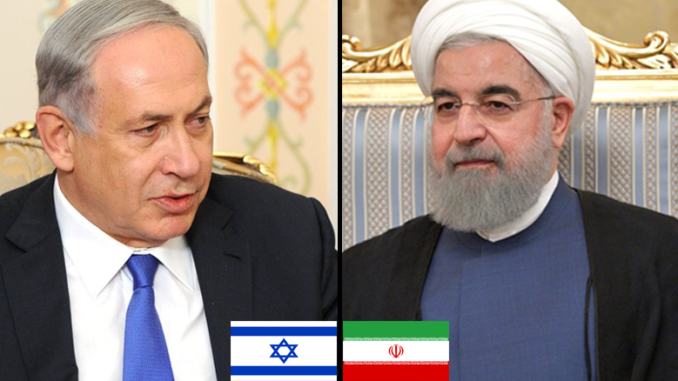
Yesterday, the al-Quds Force, an arm of the Iranian Revolutionary Guards Corps, fired 20 rockets at Israeli military positions on the Golan Heights from Syria. This rocket fire was Iran’s first direct attack against Israel. Hours later, Israel destroyed a radar installation and struck an ammunition dump in Syria.
Even as much has changed in the Middle East since the Six-Day War of 1967, much of what Israel’s Foreign Minister Abba Eban told the United Nations Security Council on June 6, 1967 remains relevant today. In his speech, Eban reminded the UN that Israel was in mortal danger. He noted that Israel, like any other sovereign state, possesses an inherent right to defend itself. Eban explained:
…there was peril for Israel wherever it looked. Its manpower had been hastily mobilized. Its economy and commerce were beating with feeble pulses. Its streets were dark and empty. There was an apocalyptic air of approaching peril. And Israel faced this danger alone…
Now there could be no doubt about what was intended for us. With my very ears I heard President Nasser’s speech on 26 May. He said:
“We intend to open a general assault against Israel. This will be total war. Our basic aim will be to destroy Israel.”
…In accordance with its inherent right of self-defense as formulated in Article 51 of the United Nations Charter, Israel responded defensively in full strength. Never in the history of nations has armed force been used in a more righteous or compelling cause.
Eban then laid out two principles upon which peace could be established:
The first of these principles surely must be the acceptance of Israel’s statehood and the total elimination of the fiction of its non-existence. It would seem to me that after 3,000 years the time has arrived to accept Israel’s nationhood as a fact, for here is the only State in the international community which has the same territory, speaks the same language and upholds the same faith as it did 3,000 years ago…
The second principle must be that of the peaceful settlement of disputes. The Resolution thus adopted falls within the concept of the peaceful settlement of disputes. I have already said that much could be done if the Governments of the area would embark much more on direct contacts. They must find their way to each other. After all, when there is conflict between them they come together face to face. Why should they not come together face to face to solve the conflict? And perhaps on some occasions it would not be a bad idea to have the solution before, and therefore instead of, the conflict.
None of those principles are novel. Both are elements of Article 2 of the United Nations Charter, which states in part, that the UN “is based on the principle of the sovereign equality of all its Members” and that all nations that are members of the UN “shall refrain in their international relations from the threat or use of force against the territorial integrity or political independence of any state, or in any other manner inconsistent with the Purposes of the United Nations.”
Even as Iran is an original member of the UN, Iran has never fully accepted the principles set forth in Article 2 of the UN Charter. Today, some 50 year after the Six-Day War, Iran still rejects Israel’s basic right to exist as a sovereign state. Iran periodically issues threats at Israel. Iran continues to provide arms to the Hezbollah terrorist organization through Syria and Lebanon.
Recently, it has elevated its provocations. In February, Iran flew a drone packed with explosives into Israel’s air space from Syria. Israeli helicopters were able to shoot it down before it could carry out its attack. Now, Iranian elements launched rockets against an Israeli military position. These new acts suggest that Iran is becoming emboldened. Israel needs to establish deterrence.
Deterrence provides the surest guarantee of security from a hostile power that continues to reject Israel’s right to exist. For deterrence to be effective, Israel must ensure that Iran understands that (1) the costs of aggression against Israel would be prohibitive, and that (2) Israel is certain to respond to any Iranian aggression. Only then, would deterrence be sufficiently credible to limit the risk of Iranian miscalculations or worse.
Therefore, Israel had no realistic choice but to respond to the “test” presented by Iran’s rocket attack. In the weeks ahead, Israel may face additional tests from Iran or Iran’s non-state proxies. Israel will need to respond forcefully to any such acts of aggression.
